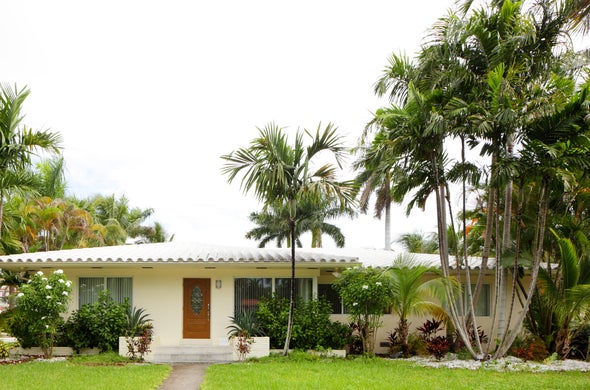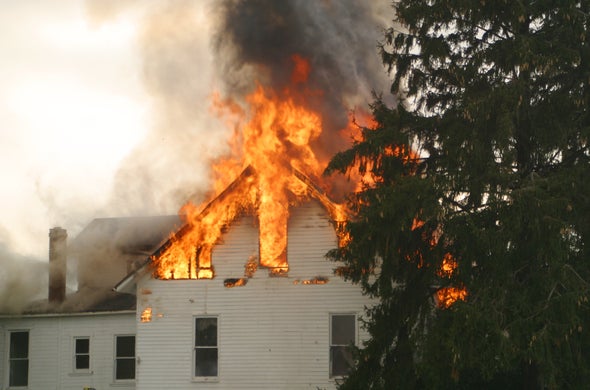Why you'll love Kin
You get more than coverage — you get a team that follows through.
Here to help
We reach out before, during, and after major weather events to make sure you’re okay — and to assist if you need to file a claim.
24/7 claims support
Easily file a claim over the phone with a member of our support team or online in your Customer Portal.
5-star care
Licensed Kin agents are easy to reach and ready to listen. Contact us via email, phone, or live chat.
What does landlord insurance cover in Louisiana?
Coverage that protects your investment, your property, and your peace of mind.
Property coverage
for the dwelling structure, other structures, and any personal property used to service the rental that you leave onsite.
Fair rental value coverage
if a covered event makes your property temporarily unfit for occupation.
Personal liability coverage
if someone is injured on your property and you are held legally responsible.
Common questions about Louisiana landlord insurance
How much does landlord insurance cost in Louisiana?
How much you pay for landlord insurance varies depending on a range of factors, including the property you are insuring and its location. However, coverage generally costs 15% to 25% more than the average price of standard homeowners insurance, which is $3,653 per year for Kin home insurance customers with $300,000 in dwelling coverage (as of January 2026).
What additional coverages should landlords consider in Louisiana?
If you're a landlord in Louisiana, consider the following endorsements or stand-alone policies to further protect your investment:
-
Flood insurance. Mandatory in flood zones. Standard policies exclude flood damage.
-
Sewer/water backup. Covers damage from sewer backups or sump overflows.
-
Loss of rental income. Covers lost rent during property repairs after a covered loss.
-
Sinkhole/subsidence coverage. Crucial in areas with soil instability, especially in areas of Louisiana where salt domes exist.
-
Vandalism and malicious damage by tenants. For intentional damage not covered by standard liability.
-
Ordinance or law coverage. Helps pay for bringing rebuilt property up to current codes.
What factors affect landlord insurance rates in Louisiana?
How much you pay for coverage will vary based on a range of factors, including:
-
Location. Properties in high-risk areas, such as coastal communities, flood zones, or areas with frequent crime, are often more expensive to insure.
-
Building characteristics. The age, size, and materials used to construct the building will be used to determine the property’s replacement cost value and risk level, both of which will affect premiums.
-
Number of units. The number of units in the build will affect your rate, with single-family units generally less expensive to insure than multi-family units.
-
Tenant type. Premiums may be lower for long-term rentals, while those designed for short-term stays or geared towards students may cost more.
-
Coverage & deductible levels. How much coverage you need will directly impact your rates, with higher limits leading to higher premiums. Likewise, your deductible will further influence your rate. Higher deductibles can lead to lower premiums, though you’ll pay more out of pocket after a claim.
-
Safety and security systems. Alarms, sprinklers, water detection systems, and storm-resistant features can lower your premium. The same is true for burglar alarm systems.
What does landlord insurance not cover in Louisiana?
A typical landlord insurance policy in Louisiana generally does not cover:
-
Tenants’ personal property. Tenants must purchase renters insurance to cover their personal property.
-
Wear and tear. Your policy won’t cover the repair or replacement of systems, components, and structures due to normal wear and tear.
-
Eviction or legal costs. Standard policies don’t cover eviction proceedings.
-
Earthquakes and sinkholes. Earth movements, including earthquakes and sinkholes, are not covered, though you can purchase a separate policy or add an endorsement to enhance coverage. This requires separate policies or endorsements.
-
Intentional tenant damage. If a tenant intentionally damages your rental property in Louisiana, your policy won’t cover it.
-
Flood damage. Damage caused by storm surges, overflowing bodies of water, and other instances is not covered by a standard landlord insurance policy. You must purchase a separate flood insurance policy or add an endorsement to your existing coverage.
How much landlord insurance do I need in Louisiana?
The right amount of landlord insurance depends on your property type, location, and rental setup. In Louisiana, where hurricanes, flooding, and windstorms are common, it’s essential to ensure your policy fully protects your investment. At a minimum, consider:
-
Dwelling coverage. Your dwelling coverage amount should cover the cost of rebuilding should a covered peril destroy your entire home.
-
Other structures. This part of your policy covers the cost of rebuilding other structures on your property, like a detached garage. Limits are often set at 10% of your property limit, but you may need more coverage based on the value of any additional insurable structures on the property.
-
Liability protection. Liability insurance can help pay for medical expenses if someone is injured and repairs or replacements of someone else’s property if you or a household member is at fault. It also covers related legal costs. You should carry enough liability insurance to protect your assets.
-
Loss of rental income. Helps reimburse you for lost rent if the unit becomes unlivable after a covered loss. You should carry enough coverage to replace the fair rental value of your property for an extended period, such as 12 to 24 months.
-
Personal property. Covers landlord-owned appliances or furniture provided to tenants. Consider a personal property coverage limit to cover the value of your insurable belongings.
If your property is in a coastal or flood-prone area, you can add flood insurance and a hurricane deductible buy-down to minimize out-of-pocket costs after a storm.
Do I need both landlord insurance and homeowners insurance in Louisiana?
If you live in the property you rent, you may need to carry both landlord and homeowners insurance or a policy like Kin’s House & Property coverage, which can cover your insurance needs as a homeowner and a landlord.
Contact a licensed company in Louisiana to determine the type of coverage best suited to your needs and rental intentions.
Is landlord insurance required in Louisiana?
Landlord insurance is not legally required in Louisiana, but you may need it if you financed your property purchase. Lenders generally require proof of insurance as part of the lending agreement.
Once you repay the loan, you can typically drop insurance coverage, but it’s generally best to maintain your policy. Insurance can protect you and your property from a range of potentially significant financial losses, including fires, storms, and legal expenses after a liability issue.






